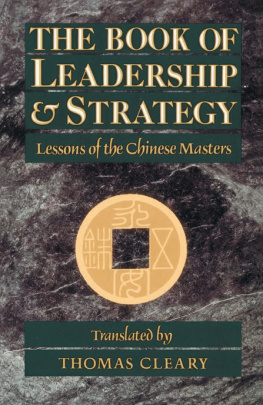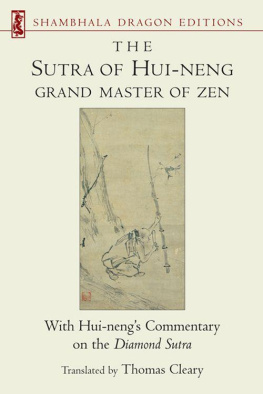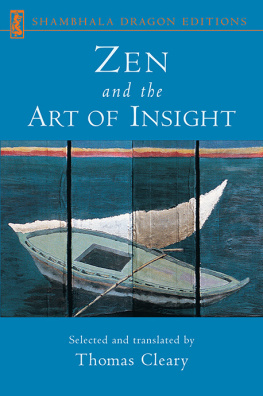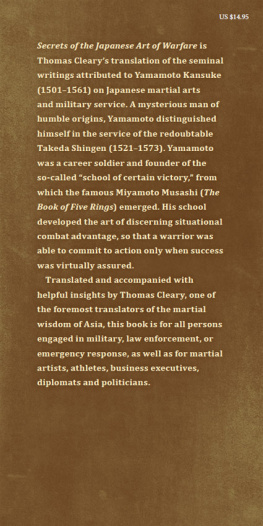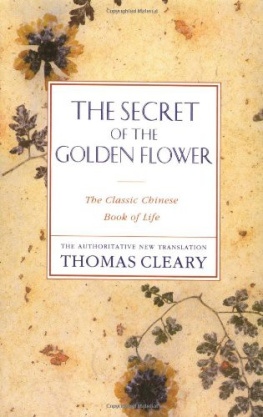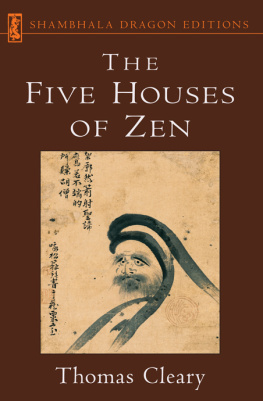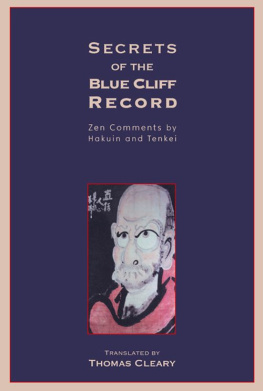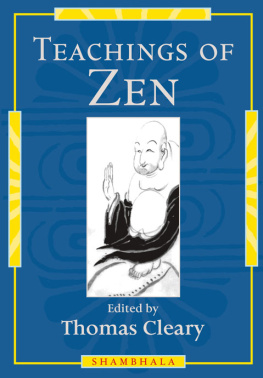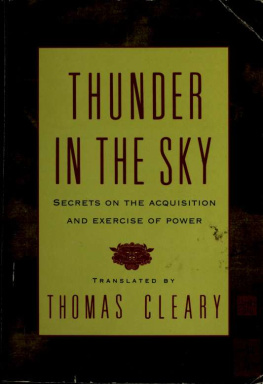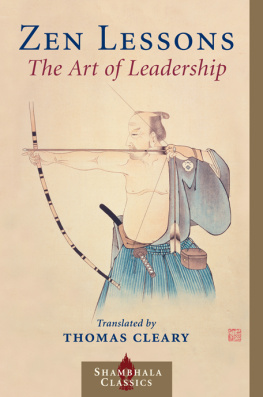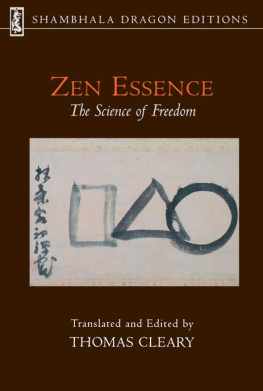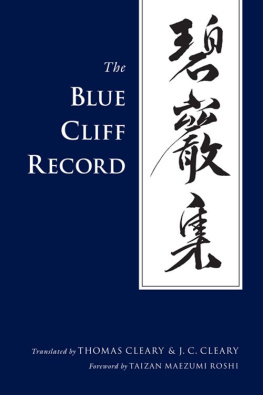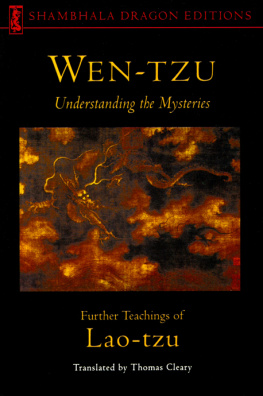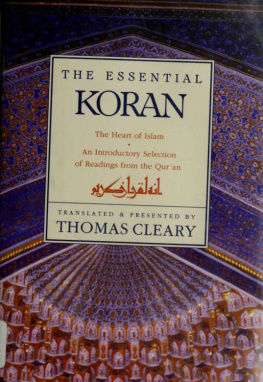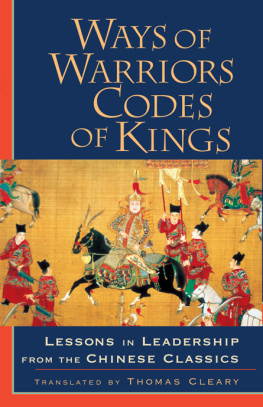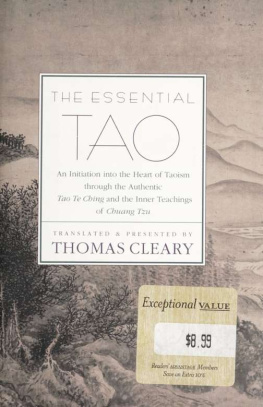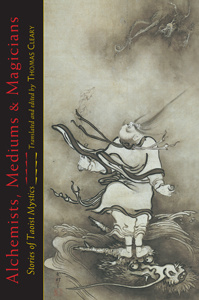Thomas Cleary - The Book of Leadership and Strategy: Lessons of the Chinese Masters
Here you can read online Thomas Cleary - The Book of Leadership and Strategy: Lessons of the Chinese Masters full text of the book (entire story) in english for free. Download pdf and epub, get meaning, cover and reviews about this ebook. publisher: Shambhala Publications, genre: Politics. Description of the work, (preface) as well as reviews are available. Best literature library LitArk.com created for fans of good reading and offers a wide selection of genres:
Romance novel
Science fiction
Adventure
Detective
Science
History
Home and family
Prose
Art
Politics
Computer
Non-fiction
Religion
Business
Children
Humor
Choose a favorite category and find really read worthwhile books. Enjoy immersion in the world of imagination, feel the emotions of the characters or learn something new for yourself, make an fascinating discovery.
- Book:The Book of Leadership and Strategy: Lessons of the Chinese Masters
- Author:
- Publisher:Shambhala Publications
- Genre:
- Rating:4 / 5
- Favourites:Add to favourites
- Your mark:
- 80
- 1
- 2
- 3
- 4
- 5
The Book of Leadership and Strategy: Lessons of the Chinese Masters: summary, description and annotation
We offer to read an annotation, description, summary or preface (depends on what the author of the book "The Book of Leadership and Strategy: Lessons of the Chinese Masters" wrote himself). If you haven't found the necessary information about the book — write in the comments, we will try to find it.
The Book of Leadership and Strategy: Lessons of the Chinese Masters — read online for free the complete book (whole text) full work
Below is the text of the book, divided by pages. System saving the place of the last page read, allows you to conveniently read the book "The Book of Leadership and Strategy: Lessons of the Chinese Masters" online for free, without having to search again every time where you left off. Put a bookmark, and you can go to the page where you finished reading at any time.
Font size:
Interval:
Bookmark:
Are leaders born or made? If leadership skills can be imparted at all through words, this book, written some 2,000 years ago, offers some possibilities. And leave it to Thomas Cleary, who translates difficult works twice as fast as most of us read them, to bring us a crucial addition to classical tracts on war and leadership.
Japan Times
This is wisdom for the new age. Its almost spooky how relevant are the words of these Taoist sages in this time of government excess and civil unrest. There are lessons here that our leaders and executives, and perhaps most importantly our children, could profit by.
Thom Calandra, financial columnist, San Francisco Examiner
ABOUT THE BOOK
The subtle arts of management and leadership have been developed over thousands of years by the Chinese. The Book of Leadership and Strategy represents the Taoist culmination of this long tradition and is one of the most prestigious works of ancient Chinese thought. Collected here are insightful teachings on the challenges of leadership on all levels, from organizational management to political statecraft. The translator, Thomas Cleary, has chosen and arranged these teachings to emphasize the most valuable lessons of Taoist wisdom for modern Western readers. Like Cleary's best-selling translation of The Art of War by Sun Tzu, this work will serve as an enlightening guide for people in business, politics, and government.
THOMAS CLEARY holds a PhD in East Asian Languages and Civilizations from Harvard University and a JD from the University of California, Berkeley, Boalt Hall School of Law. He is the translator of over fifty volumes of Buddhist, Taoist, Confucian, and Islamic texts from Sanskrit, Chinese, Japanese, Pali, and Arabic.
Sign up to learn more about our books and receive special offers from Shambhala Publications.

Or visit us online to sign up at shambhala.com/eshambhala.
THE BOOK OF LEADERSHIP AND STRATEGY
Lessons of the Chinese Masters
Translations from the Taoist classic Huainanzi
by THOMAS CLEARY

SHAMBHALA
Boston & London
2013
SHAMBHALA PUBLICATIONS, INC.
Horticultural Hall
300 Massachusetts Avenue
Boston, Massachusetts 02115
www.shambhala.com
1990 by Thomas Cleary
All rights reserved. No part of this book may be reproduced in any form or by any means, electronic or mechanical, including photocopying, recording, or by any information storage and retrieval system, without permission in writing from the publisher.
LIBRARY OF CONGRESS CATALOGING-IN-PUBLICATION DATA
Huai-nan tzu, d. 122 B.C.
[Huai-nan tzu. English. Selections]
The Book of leadership and strategy: lessons of the Chinese masters/translated
by Thomas Cleary.
p. cm.
Translation of: Huai-nan tzu.
Originally published under title: The Tao of politics.
eISBN 978-0-8348-2821-6
ISBN 0-87773-667-7 (pbk.)
I. Cleary, Thomas F., 1949 . II. Title.
[BL1900.H822E5 1992] | 91-53226 |
181.114dc20 | CIP |
BVG 01 |
THIS BOOK is a collection of extracts from Huainanzi, The Masters of Huainan, an early Taoist classic following the ancient tradition of Lao-tzu and Chuang-tzu. Composed over two thousand years ago, Huainanzi is one of the oldest and most prestigious works of Taoist philosophy.
The book of the masters of Huainan is a record of sayings on civilization, culture, and government. More detailed and explicit than either of its great forerunners, Lao-tzus Tao-te Ching, and the Chuang-tzu, it embraces the full range of natural, social, and spiritual sciences encompassed in classical Taoism. It links environmental husbandry, personal development, and sociopolitical evolution into a comprehensive vision of human life.
The origin of the book of the Huainan masters is traced to an inner circle of Taoist sages at the court of the king of Huainan, ruler of a small principality within the vast empire of Han dynasty China in the second century B.C.E. The king of Huainan was a distinguished patron of learning, and his court was already a flourishing center of culture when a group of eight Taoist masters appeared with these teachings.
Although the ideas of the masters of Huainan are based on the famous Taoist classics by Lao-tzu and Chuang-tzu, their emphasis differs in one important respect. The works of Lao-tzu and Chuang-tzu are products of Chinas era of the Warring States, and their attitudes toward involvement in the world reflect the corruption and turmoil of their times. The Huainan masters, in contrast, lived in a time of national reconstruction following the end of centuries of civil war; their teachings are thus more positive and constructive than those of the wartime Taoists.
The selections from the book of the Huainan masters translated here focus on the core principles of their teachings. Like other Taoist classics, these writings are for contemplation and not indoctrination; therefore they do not follow a rigid system of dogma. In order to facilitate absorption by a modern audience, these extracts have been grouped into four sections: state and society, warfare, peace, and wisdom. Being Taoist teachings, these four groups of meditations are linked to one another like the four seasons of a year.
The Huainan masters teachings on government deal with a broad range of elements composing the fabric of state and society, including organization and human relations, economy, education, culture, customs and morals, industry, and husbandry.
The masters advocate a pluralistic yet egalitarian society with minimal government interference and maximum opportunity for individual fulfillment. They also propose a conscious balance between the human and natural worlds, regarding it as so necessary that they refer to this balance itself as divine.
The ideals of the Taoist group are graphically illustrated by their comparisons between what they view as progressive, evolutionary societies and what they consider degenerate, decadent societies. These sketches also symbolize different phases in the development of individual human consciousness.
The Huainan masters speak of healthy societies in terms of balance and harmony on each level of being, from the way the individual human body-mind complex experiences itself to the way it experiences interaction with the natural and social worlds.
Degenerate societies, in contrast, are characterized by extreme exaggeration of some human capacities and corresponding atrophy of others, in both individual and collective life. The Huainan masters observe this phenomenon in terms of cause and effect as indicative of countercause and countereffect, leading to the idea of liberation.
The two main factors in human psychology pictured by the Huainan masters as most destructive are greed and aggression. These are connected to fear and blindness, and all together they produce conflict and violence. Warfare is one of the paradoxical symbols of ancient Taoism, being the epitome of conflict and violence but also representing a way of ending conflict and violence, a symbol of self-purification.
All of the original classics of Taoism contain teachings on the causes and effects of warfare; the book of the Huainan masters is foremost among them in scope and detail, distilling the essences of the I Ching, Lao-tzus Tao-te Ching, the Chuang-tzu, and Sun-tzus classic on strategy and tactics, The Art of War.
Next pageFont size:
Interval:
Bookmark:
Similar books «The Book of Leadership and Strategy: Lessons of the Chinese Masters»
Look at similar books to The Book of Leadership and Strategy: Lessons of the Chinese Masters. We have selected literature similar in name and meaning in the hope of providing readers with more options to find new, interesting, not yet read works.
Discussion, reviews of the book The Book of Leadership and Strategy: Lessons of the Chinese Masters and just readers' own opinions. Leave your comments, write what you think about the work, its meaning or the main characters. Specify what exactly you liked and what you didn't like, and why you think so.

